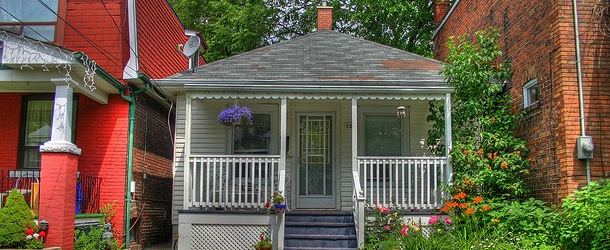I’m getting sick and tired of hearing about how restrictive and constrained mortgage lending standards are these days.
It’s really not that hard to get a mortgage, despite the massive financial failure that took place just a few years ago.
In fact, you’d think it would be a lot harder to get a mortgage given the billion dollar losses that stemmed from loose lending over the past decade, but no. It continues to be easy to get a mortgage.
Sure, the new Qualified Mortgage and Ability to Repay rules are now in effect, but most of those rules were already being voluntarily adhered to before they were implemented.
The mortgage industry made it appear as if they were making some concessions, but banning 40-year mortgages and neg-ams when they were already pretty much nonexistent doesn’t mean a whole lot.
Yes, the DTI limit of 43% is a very real thing, a legitimate rule that has the potential to limit mortgage lending. But it’s not being enforced for the next seven years if the loans are eligible for purchase by Fannie Mae, Freddie Mac, or the FHA.
For the record, the overwhelming majority of mortgages made today are backed or sold to that trio.
At the same time, there isn’t a minimum credit score associated with QM, nor is there a max loan-to-value ratio.
It’s true that Fannie Mae got rid of their 3% down mortgage, but TD Bank brought it right back just a few months later.
And Wells Fargo now allows up to two percent of its minimum five percent down payment to come in the form of a gift from relatives.
The FHA hasn’t packed up and left. They still only require 3.5% down (with gifting available), and USDA loans, which require nothing down, are still widely available.
Yes, there are restrictions in place, and the FHA has gotten really expensive, but there are still plenty of very accommodating options.
Heck, you can get a mortgage one day out of foreclosure or short sale. Is that not soon enough?
Will the Seller Reject Your Loan Application?
The real problem today has nothing to do with restrictive underwriting guidelines. The problem is a lack of homes for sale, an absence of inventory, and a fear that if you sell today you won’t be able to find another home to buy.
There’s also a fear that you’ll be giving up your stellar mortgage rate when you sell, despite the fact that rates have defied logic and continue to inch lower.
When it comes down to it, bidding wars and red-hot demand are dictating who can get a home.
The average Joe can more than likely qualify for a mortgage, even if it’s not the most favorable mortgage. But when it comes time to accept an offer, the home seller is going to favor the stronger borrower.
Why? Because home buying demand continues to be so strong that a seller can be extremely choosy in whom they agree to sell to.
So if there’s a prospective buyer with a 580 credit score that’s able to put down 5%, and a buyer willing to bring in 20% down with a 700 credit score, it’s a no-brainer.
Both buyers qualify for a mortgage, even with today’s “strict rules” in place, but the one who gets the house is the one with a stronger financial profile. It has nothing to do with restrictive lending.
The seller ultimately determines who gets the loan, not the lender.
(photo: Mark Bray)


No disrespect to you opinion about lending standards, but you obviously have not originated a loan in a long time or ever. Try doing a loan from start to finish before you spout off about easy lending standards then you will have the right to talk about how easy it is to get a loan done.
I didn’t say the lending PROCESS is easy, I said standards aren’t really much tighter than they were before the crisis. It’s still a completely bureaucratic, convoluted process, but that will never change.
The process is not easier but in many ways much fairer to the borrower, YSP is definitely more fair to the borrower under the current rules. Loans still flow if you take your time to do things right. Plus, 100% loans with no reserves and stated income was a tragedy. Families lost homes that the could not afford in the first place, I personally think there is a market for stated loans, self-employed with 20% down, scores of 700+ and 6 months or more reserves. Some of the best loans I made were Freddie Mac Accept Plus which was stated.
Fairer to the borrower and still very flexible, as we’re seeing with many of the new QM products rolling out. Sure, there will always be collateral damage when sweeping changes are made, but hopefully it makes for a healthier housing market for the majority. And really this article was more about sellers determining who gets “approved” as opposed to lenders, seeing that there are many multi-bid situations nowadays.